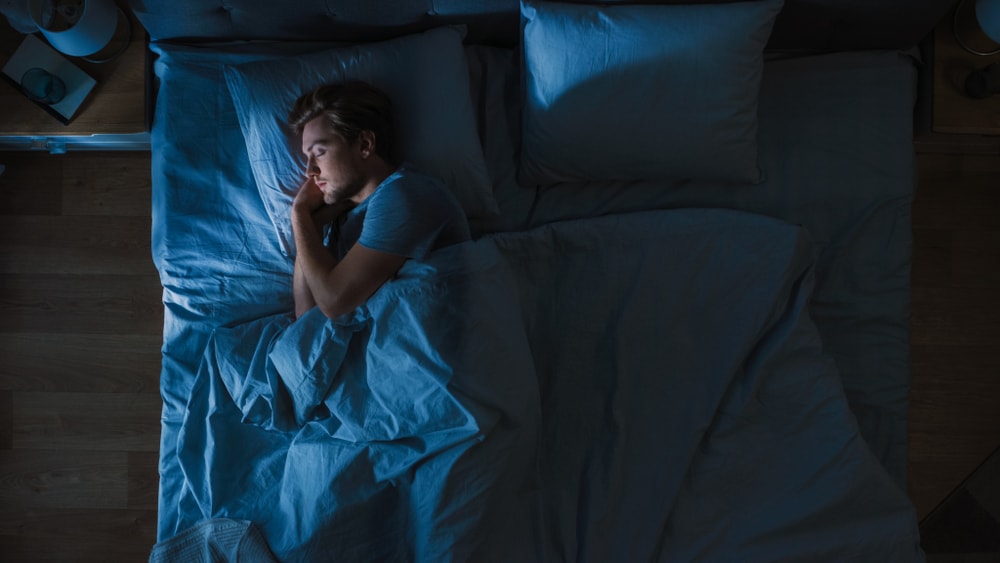Sleep is for the good, sleep is for the strong. Sleeping too much is injurious, but sleeping less is devoid of benefits too. Would you like to know how your health repairs itself when you are snoring soundly in your bed? Well then let’s find out:

1) As you fall asleep, you jerk every time
As we fall asleep, sudden electric signals pass from our brain to our limbs which cause them to move in a particular fashion. You should probably be familiar of such jerks. However, you may not know the term to describe these. Well, they are known as ‘Hypnic jerks‘, you are welcome!
The reason behind this effect is still unknown but according to some studies it has been found that such jerks indicate the state between consciousness and sub-consciousness. There are so many movements in our body that happen during sleep, the most common of which is the eye movement. These eye movements during sleep form a diagnostic tool for diagnosis of various neurological, psychological and sleep disorders.
Hypnic jerks are most common in children. Our dreams are mostly simple and do not reflect what is happening in the dream world – if you dream of riding a bike you do not move your legs in circles. Instead, hypnic jerks seem to be a sign that the motor system can still exert some control over the body as sleep paralysis begins to take over. Rather than having a single “sleep-wake” switch in the brain for controlling our sleep (i.e. ON at night, OFF during the day), we have two opposing systems balanced against each other that go through a daily dance, where each has to wrest control from the other.
2) Body temperature regulation
When we are active during day time, our body temperature goes up and keeps the metabolic ratio high, and that makes the body calories burn out and the carbs and fats reduce in number. If this mechanism remains activated for a continuous 24 hours, it can become dangerous. So the antagonist effect is provided by our sleep. The process of sleeping keeps the body temperature down and helps in its regulation as well.
3) Body toxin cleansing
You have seen so many people who get less sleep are in a usual state of irritation and distress. The reason behind this behavior is that sleep helps in cleaning the body from toxins. So those who remain sleep deprived, get their toxins cleaned from their body in an ineffective manner. This makes them feel unhealthy inside that keeps their mind in a constant state of irritation. So to get better cleaning of your insides, appropriate sleep is a must.
4) Sleep preserves your memory
According to Christopher Colwell, who is a sleep specialist at UCLA School of Medicine, “If you remembered everything, it would fill up your brain, so a sorting process takes place during sleep.” The logic is quite simple. One need a relaxing mechanism to keep the memorized information stored in for a longer term, and sleep is the best answer to it.
5) Our brain stays awake while our body sleeps
The brain of people who experience dreams very frequently and daily is more active than those people who tend to remain awake most of the time. The reason behind this is that when our brain starts generating thought processes and sums them up into a dream, it needs more oxygen and nutrients. According to Dr. Alon Y. Avidan, who is a professor of neurology and director of UCLA’s Sleep Disorders Center “in REM sleep, you’re organizing thoughts and learning, filing information, but no one really understands specifically why a sleeping mind is active.” Our mind sometimes gets so active during sleep that it starts helping in discoveries and in working better than it would in a wakeful state.
6) The process of wear and tear repair
All the body cells, even those of our brain need a repairing process, and this phase of repairing takes place when one is going through the restoration phase (sleeping, to be specific). Sleep helps the cells to recover from the damage they go through during day time.
7) Your immune system reactivates when you sleep
Your immune mechanism gets in action while you are sleeping. According to Dr. Jordan Stern, who is the founder and director of the BlueSleep Center in New York City. “As soon as I see the first signs of an upper respiratory infection, I try to sleep for 10 hours.”
